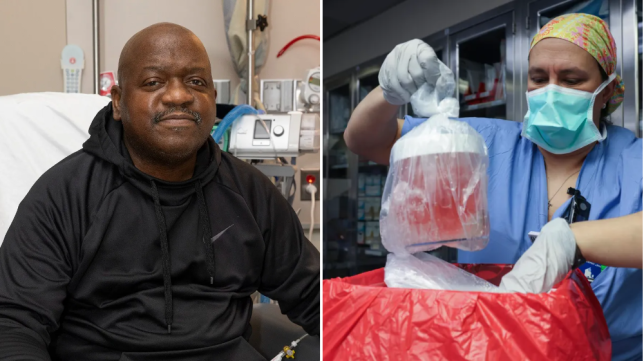Boston: In a pioneering medical procedure that captured global attention, the first recipient of a genetically modified pig kidney transplant, Richard “Rick” Slayman, has passed away nearly two months after undergoing the groundbreaking surgery. The news was confirmed by both his family and the medical team at Massachusetts General Hospital, where the transplant took place.
Slayman, a 62-year-old resident of Weymouth, Massachusetts, underwent the transplant in March, with surgeons expressing confidence that the pig kidney would function for at least two years. However, his untimely demise has left the medical community and his loved ones in mourning.
While the hospital stated that they had no indication that Slayman’s death was directly linked to the transplant, they expressed profound sadness at the loss and extended condolences to his family. Slayman’s case marked a significant milestone in the field of xenotransplantation, as he was the first living person to receive a genetically modified pig kidney. Previously, such transplants had only been performed on brain-dead donors.
Slayman’s journey to the transplant began in 2018 when he underwent a kidney transplant at the same hospital. However, complications arose last year, necessitating a return to dialysis. When his condition deteriorated further, his doctors recommended the experimental pig kidney transplant as a potential solution.
In a statement, Slayman’s family expressed gratitude to his medical team for their tireless efforts and acknowledged the additional time they were able to spend with him following the transplant. They emphasized Slayman’s desire to provide hope for others in need of transplants and hailed his enduring optimism and spirit.
Xenotransplantation, the practice of using animal organs for human transplants, has faced significant challenges in the past due to immune rejection. However, recent advancements, including genetically modifying pigs to make their organs more compatible with humans, have shown promise in addressing the shortage of donor organs.
With over 100,000 people on the national transplant waiting list, Slayman’s case underscores the urgent need for innovative solutions to save lives and alleviate suffering in those awaiting life-saving transplants.



